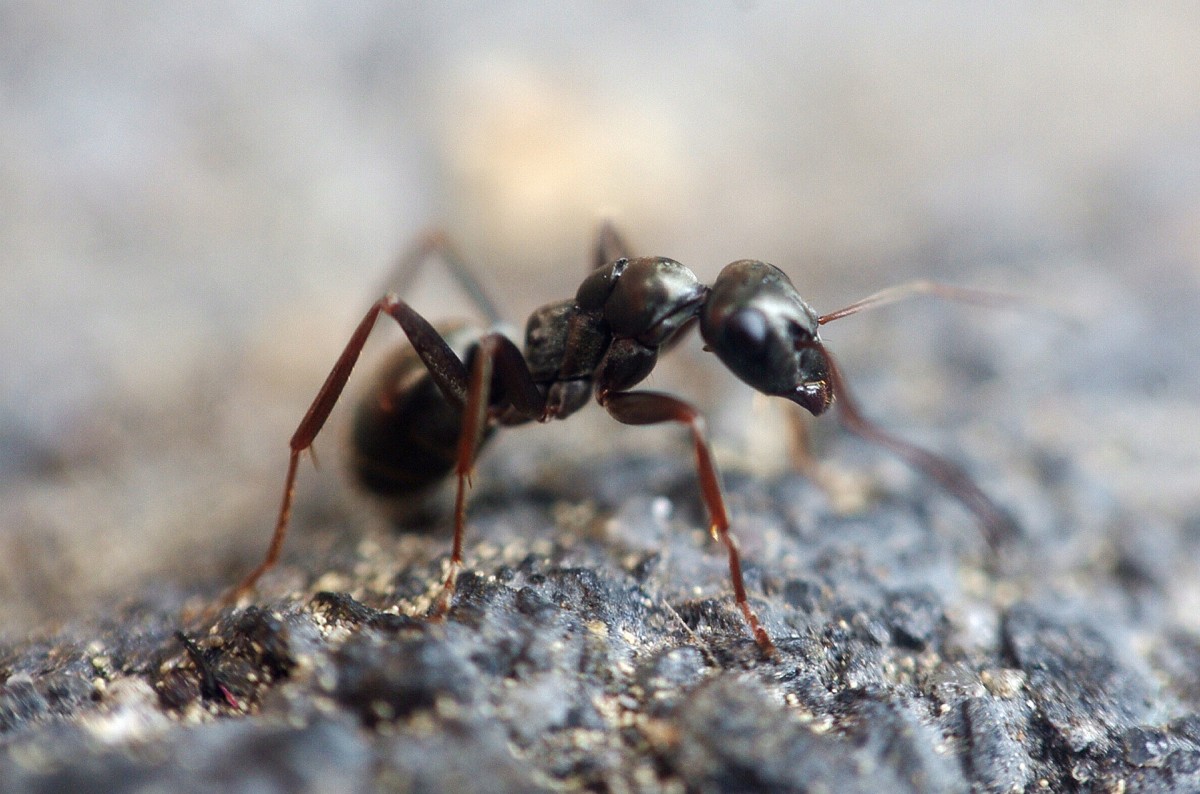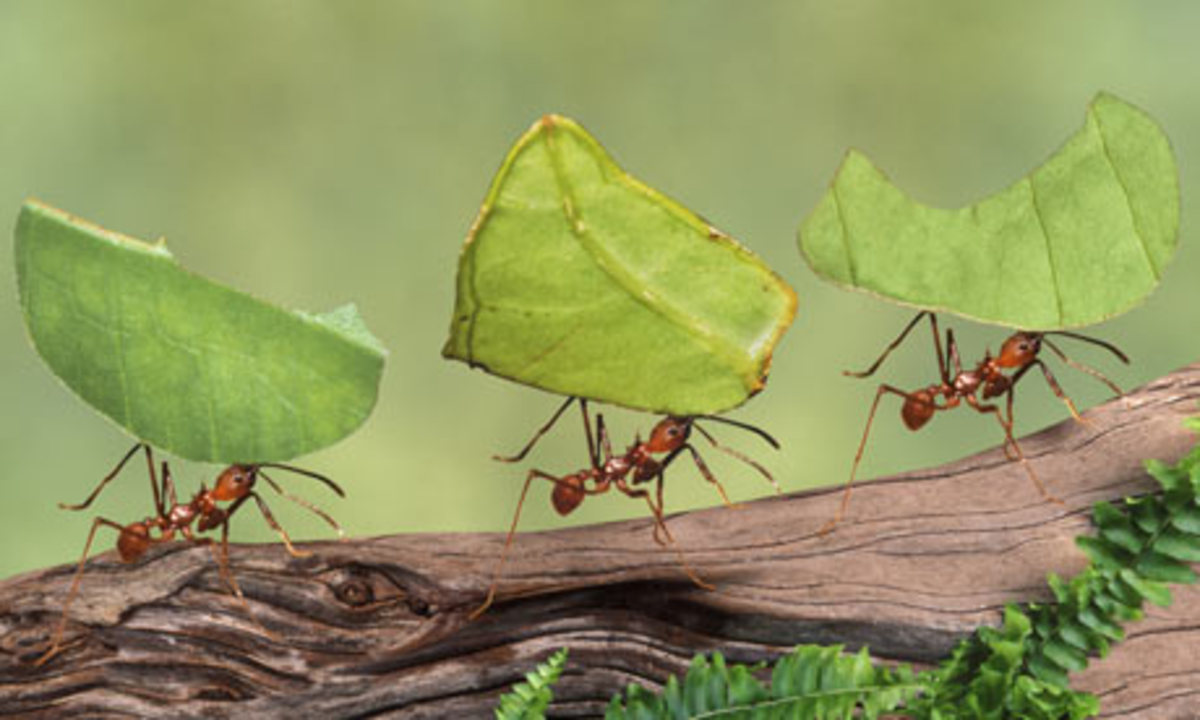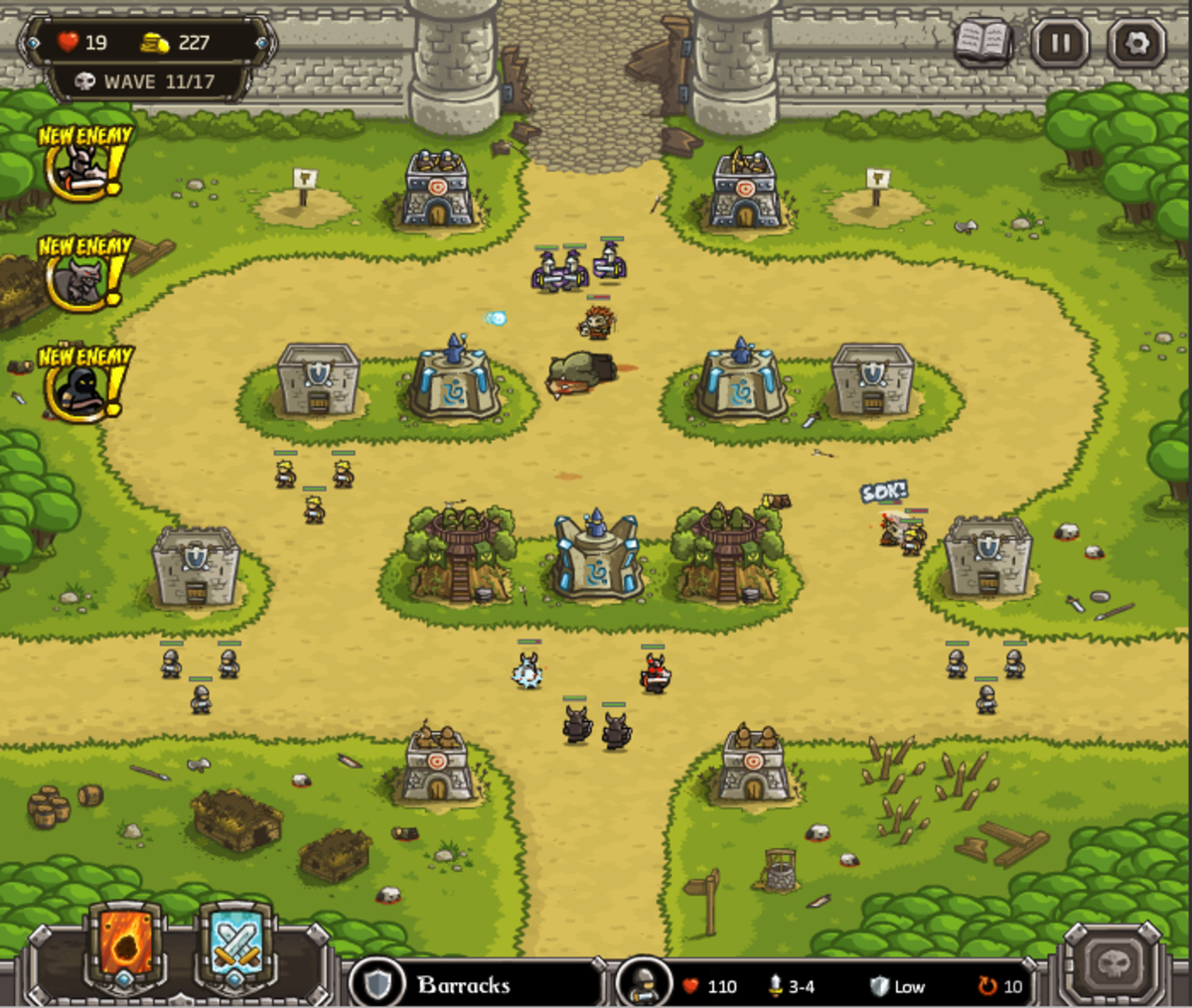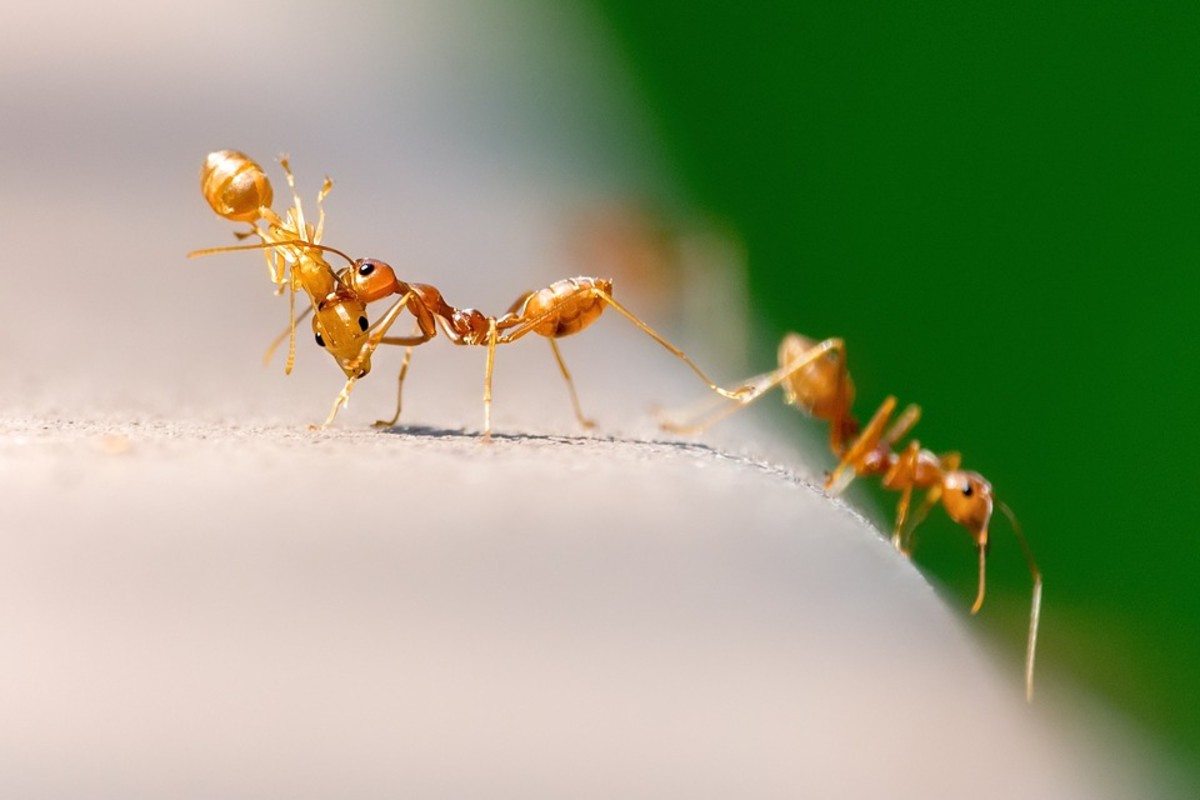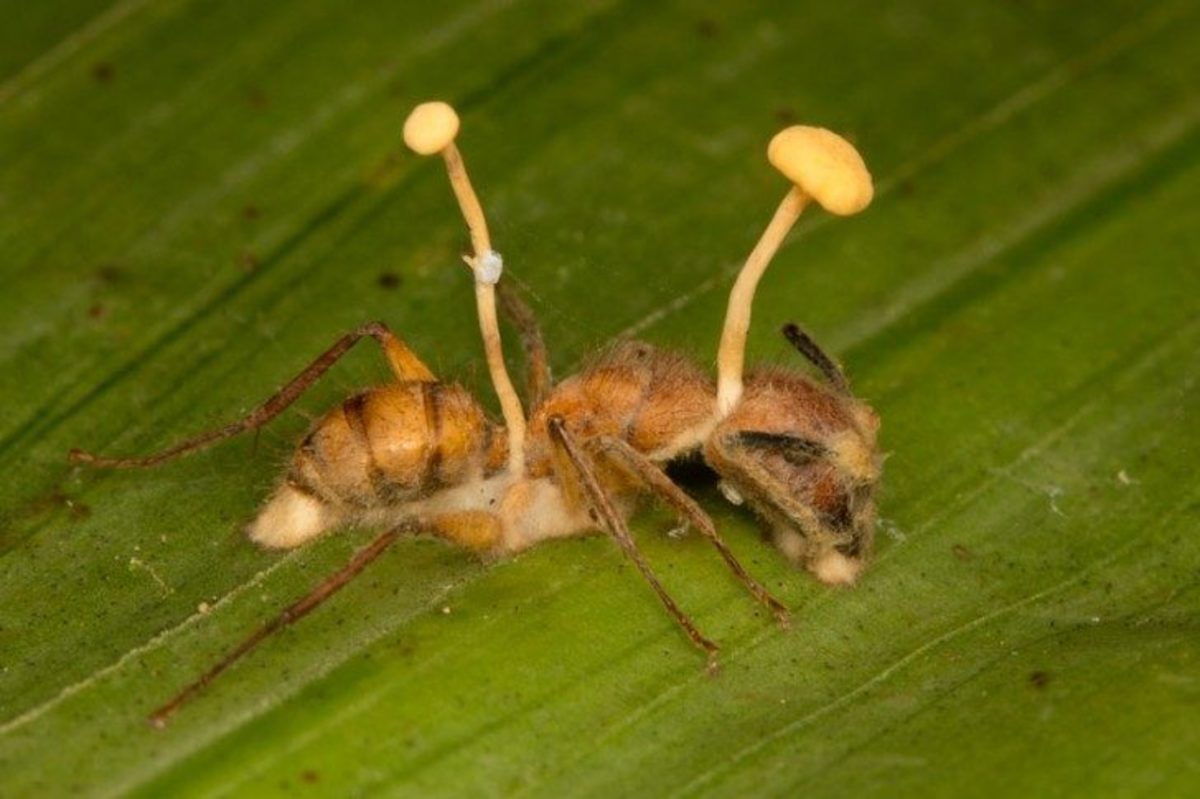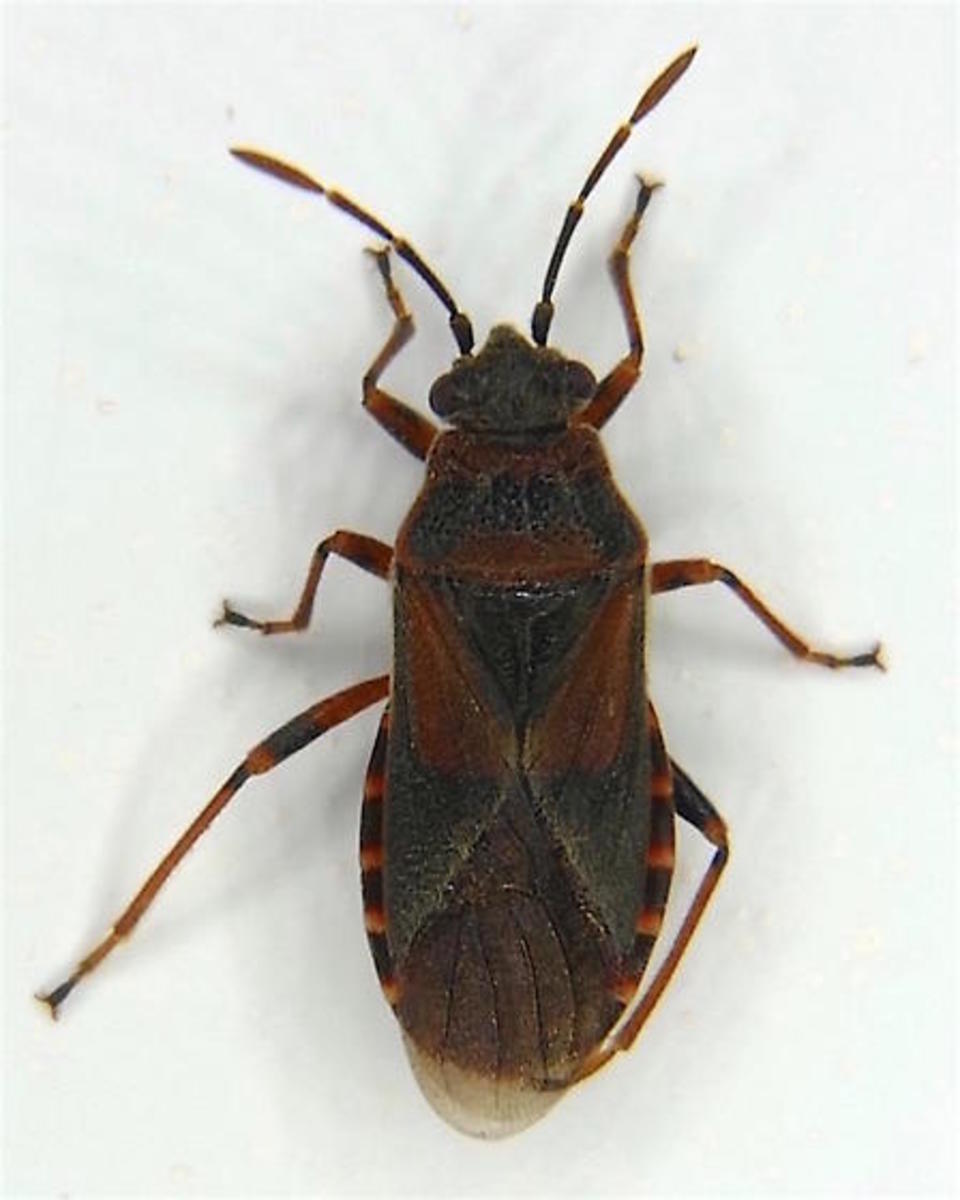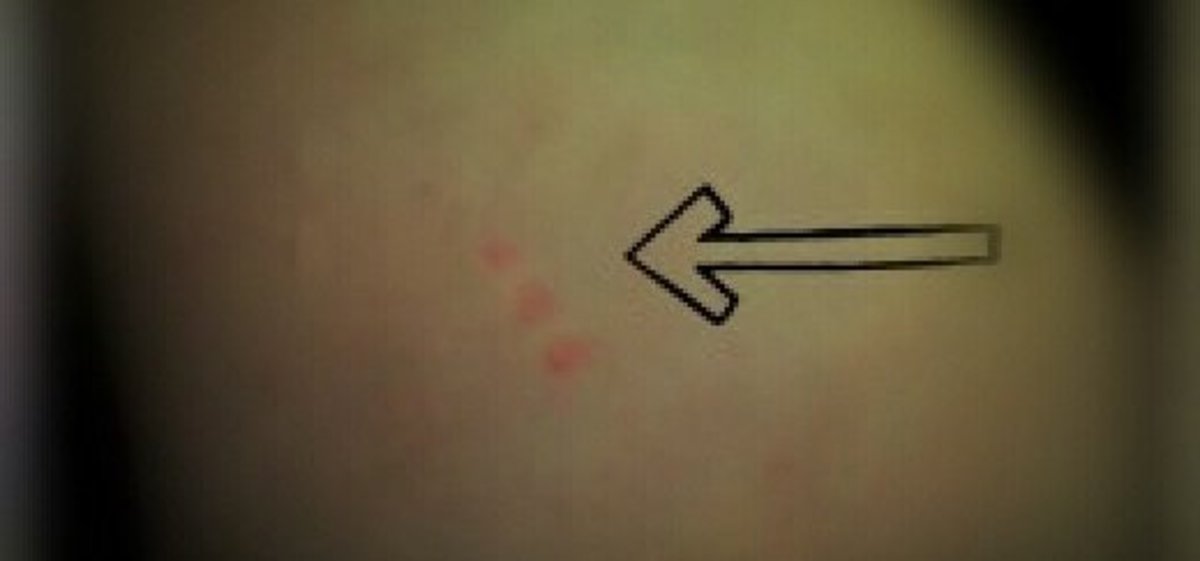- HubPages»
- Education and Science»
- Life Sciences»
- Entomology»
- Insects & Bugs
Defending The Kingdom - Getting Rid Of Ants
Like some 1950's horror movie, I open the door to the dishwasher and a surprise awaits me. Now I'm mad, and without a word to anyone in my kingdom, I defend the castle. No sense in upsetting the king, laying on his couch-throne watching the plasma court jester who never shuts up.
Now it seems I'm living in the Twlight Zone, as I open the kitchen utensil drawer for a spatula. Every fiber of my queenly being cries silently, as I dump the metal and plastic contents onto the marbled top. The question "why" doesn't audibly leave my lips, but it's boomeranging across my brain.
Not wanting the king to take matters into his own hands, I stealthily employ my knight in shiny aerosol armour and quietly shut the drawer. The king must not know, or we'll all risk being poisoned in the royal kitchen. He takes no prisoners, I suppose that's how he earned the crown. Yet, death to the enemy, also means a polluted kingdom, if he detects the invaders.
I retreat to the royal bath quarters, knowing I must replenish the king's Q-tip pawns. My eyes widen in noble disbelief, "Why or why, would the invaders be there too?"
Glancing at the clock, I note that my battle plan must be enacted quickly. The next queen in line for the throne is due home any minute. She will not hesitate to deplete the imperial treasury, if she encounters invaders. I don't want her warriors from Truly Nolen involved in the battle. The king of "do-it-yourself land" will throw a majestic fit when it comes to the unnecessary loss of his gold.
The moral of this not-so-much-of-a-fairy-tale, is that you've got to arm yourself with the right army, if you build your castle and kingdom in the land of sand and the Wasmania auropunctata (little fire ants). They were here first, and take exception to your hostile take over. They will try to over-throw your kingdom and make your castle unfit to live in. There is no assimilation.
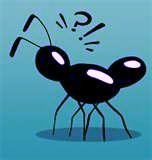
Food Preferences of Ants
Different kinds of ants feed on a wide variety of foods, here are some examples:
- Fire Ants -- Prefer honeydew, sugars, proteins, oils, seeds, plants, and other insects.
- Pharaoh Ants -- Like sugars, proteins, oils and other insects.
- Crazy Ants -- Go for sugars, protein, and other insects.
- Carpenter Ants -- Only like sugars and other insects.
Know Thine Enemy
There are ants, and then there are "ants." Knowing what kind of ant you have as an unwanted guest, will help you decide the best method of ant pest control. Here, in the American South we are plagued by the:
- Pharaoh Ant (Monomorium pharaonis)
- Ghost Ant (Tapinoma melanocephalum)
- Florida Carpenter Ant (Camponotus abdominalis floridanus)
- Native Fire Ant (Solenopsis geminata)
- Imported Fire Ant (Solenopsis invicta)
- Little Fire Ant (Wasmania auropunctata)
- Crazy Ant (Paratrechina longicornis)
- Big-Headed Ant (Pheidole megacephala)
- Acrobat Ant (Crematogaster)
- Argentine Ant (Linepithema humile)
Conquering Your Ant Enemy
Obviously, prevention is the best line of ant defense. Some ants are so small that they can fit through very small openings and gain access to your home. Just simple caulking can prevent many ant infestations. This not only is effective against the ants, but also other insects.
Cautious use, not over use of residual insecticide sprays applied outside your home as a barrier will only produce temporary relief. Be aware, that this route will not kill the ants immediately, and that you will no doubt be finding ants that crossed that barrier, dead on arrival inside the house.
Ant baits are only effective, as far as that they are only for ant species that are sweet feeding. (Use of ant baits that contain boric acid work best). Generally, this isn't a cost effective method because of the amount of bait needed over several weeks. It's also not recommended that such baits be used inside, but placed outside.
To keep it simple, here are some tips for keeping ants out of your castle:
- Cleanliness -- Food and food particles attract ants.
- Store food in airtight containers.
- Remove house plants that attract ants; are susceptible to aphids, white flies, and other honeydew producing insects.
- Reduce all sources of moisture.
- Locate sources of entry and trails to know where your most effective counter measures should take place.
- Target trails and entrance paths of ants for any chemical control.
- Use fresh bait.
- Do not smoke during baiting as nicotine contaminates the bait.
- Do not bait before or after a drenching rain, heavy dew, or irrigation.
-
Wiping things down with a simple solution of water, diluted with bleach will deter ants inside the house.
Here Are A Couple of Interesting Ant Species
Florida Carpenter Ant
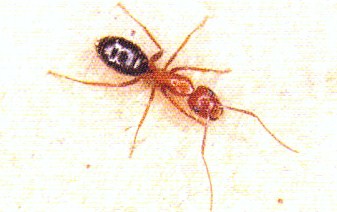
Florida Carpenter Ants
You'll know these large ants (1/4 to 1/2 inch long) by their reddish brown thorax and dark brown to black abdomen. They didn't start out as pests, because they really want to nest outdoors in stumps and logs where the wood contacts the soil and moisture is abundant. The problem has become, as we humans have encroached on nature's territory, that they now enter our kingdoms in search of food, water, and good nesting sites.
It's a myth that they eat wood, like a termite. What happens is that they are lazy, and prefer wood that termites have already damaged, or that has decayed. They use these damaged spots as galleries to raise their youngsters. So, they will excavate the wood further, reducing the wood that they chew into a rough sawdust. They simply do not damage wood that wasn't already damaged.
They are actually good housekeepers of these brood galleries, keeping them smooth and spotless, unlike other insects.
The reasons why they find our households inviting, is that they feed on the honeydew from sucking insects in and around our castles, and from human food scraps that we leave around(no matter now minuet).
Carpenter Ant Detection
Crazy Ants

Crazy Ants
Personally, I'm a little freaked by the sheer numbers of the Crazy ants, for they can number in the billions.
For identification purposes, they are black and about 3 mm long, with long legs. They get the name Crazy ant from the erratic behavior of the workers in their colony. Unlike, many other ant species, they are happy in both dry and moist environments.
While they don't sting like fire ants, they can bite. They are known to infest electronic devices and appliances, and have even caused electrical shortages.
There are two different kinds of Crazy ants, the Raspberry Crazy ant and the Caribbean Crazy ant. Currently, two states are experiencing wide spread problems with this pest, Florida and Texas. The Raspberry Crazy ant has invaded Texas and the Caribbean Crazy ant has invaded Florida.
Probably the only thing redeeming about them, is that they will kill and eat fire ants, making them the lesser of the two evils.
Crazy Ants
Like The Honey Bee
When ants are invading your home and your landscape, it's hard to imagine that ants as a species, hold a special place in the grand scheme of life. Like the honey bee, ants are eusocial and very worthy of study and admiration.
As crazy as they make me when they turn up in our house, they are also a source of wonderment. When you think about it, even though they are a tiny insect, they too have their role on the planet. They play a very important role in that:
- They aerate the soil
- They clean up the ground and tree branches
Sounds like a small things, but very vital to a healthy earth. Ants are only pests, in that our worlds collide when they seek the indoors or our landscape. I'm for peaceful co-existence whenever possible. Not possible inside my castle, so I kill with respect to my enemy and do my queenly best to discourage invasions.
Ants Create A Life Boat
If You'd Like To Know More!
- Carpenter Ants
- Getting Rid of Ants
- How to Get Rid of Ants
Tips for getting rid of ants - Rasberry Crazy Ant, Paratrechina sp. near pubens
The Center for Urban & Structural Entomology deals with the identification and treatment of Urban and Structural Pests. This site contains publications and facts about several Urban and Strutural Pests.

